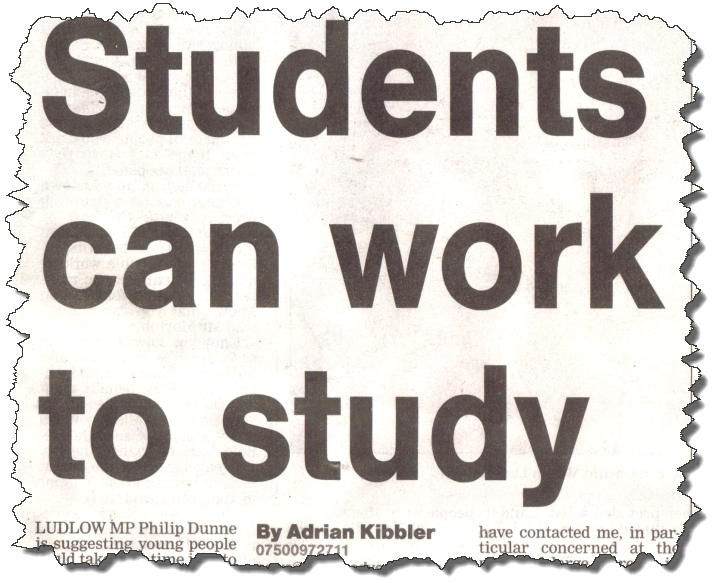On Radio Shropshire earlier this week, portfolio holder Ann Hartley and Karen Bradshaw Director of children’s services announced changes to hikes in post-16 transport to sixth form and college. This follows a consultation which fairly predictably came out against the huge leap in fares.
Shropshire Council had planned to hike the cost of a bus pass from £550 to £878 a year from September. Now it is going to phase the increase over three years.
Following the consultation, students will have to pay £658 during the next academic year. That’s still an eye-watering hike of £324 a year, but it’s a lot better that Shropshire Council’s initial proposal. But over three years, the cost is set to hike 60%.
For students whose families receive benefits, the costs of a pass will rise from £10 to £22.50 a term next year, increasing to £47.50 in 2016. This may not seem a huge amount of money, but when you have next to no money it’s a great deal.
The charge for those on defined benefits is described by Shropshire Council as an ‘administrative charge’. How come the council’s administrative costs are set to rocket 375% in three years?
| Date | Full term | Defined benefit |
| Sept 2013 (now) | £183 | £10.00 |
| Sept 2014 | £219 | £22.50 |
| Sept 2015 | £255 | £35.00 |
| Sept 2016 | £292 | £47.50 |
Our local MP, Philip Dunne was reported on the front page of last week’s Ludlow Advertiser saying that if young people can’t afford the bus fares, they should leave school and take part time work. This shows little knowledge of the economic geography of our county. It’s not easy for students in rural villages to find work locally and public transport in rural areas rarely suits those who need to get to work.
There is no doubt that this fare hike will cause hardship. It’s another example of Shropshire Council’s lack of concern for the next generation.
It’s also another example of the council’s disregard for democracy. The decision to hike the fares has not been debated or approved by a council committee. It has been made by officers and cannot be scrutinised.
That’s wrong. Decisions that affect large numbers of people should be made in public committee and be subject to challenge.

